
What does is stand for?
LeDeR is short for Learning from Lives and Deaths of people with a learning disability and autistic people.

What does it do?
It is a group that finds out how people with a learning disability or people with autism have died.

Who is it ran by?
LeDeR is run by NHS England and Kings College University.

LeDeR wants to
- Make social care and health care better for people with a learning disability or autism
- Stop people dying too soon

Filing a report
If someone over 18 with a learning disability or autism in England dies, it can be reported to LeDeR.
Anyone can fill in a report to LeDeR online.

What happens next?
Someone from LeDeR will then find out about that person’s life and the care they got before they died.
This person is called a reviewer. They will ask questions about the person who died.

What does a reviewer do?
They look into how the person died and whether they got the care and support they needed.

The reviewer can talk to
- Family or friends of the person who died
- The doctor of the person who died
- The carer of the person who died

Looking at notes and records
The reviewer can also look at things like doctor’s notes and some medical records about the person who died.

Good care
The reviewer will look for good things that happened in that person’s care.

Make care better for others
If something was really good about the care they got, the LeDeR team could use what they find out to make sure it happens for everyone.

Bad care
They will also look for bad things that happened.

Making change for good
If something went wrong, the LeDeR team should make sure that the local health and social care services learn lessons and make sure it does not happen again.
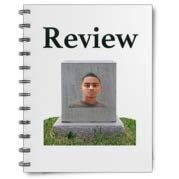
Sharing a report
The reviewer will share what they find about the person who died in a report.
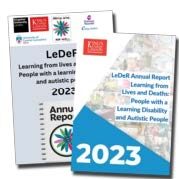
Send report out
The reviewer sends the report to the research team at Kings College that looks at the reports from the whole of England.

Looking closer
- Sometimes LeDeR will decide to look more closely at a person’s death.
- This is called a focused review and goes into more detail about what happened to them.
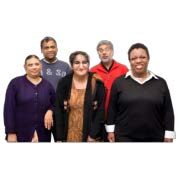
Focused review
Every person who died who was from a black, Asian or another ethnic minority background will have a focused review.
What is the LeDeR annual report?

Making a report
- The team at Kings College use all the information they get to make a report once a year
- It is called the LeDeR annual report

What does it do?
The LeDeR Report looks at all the deaths of people with a learning disability or Autism that were reported to LeDeR.

The report looks at the health and social care people with a learning disability got before they died.

The report talks about good things and bad things about their care.
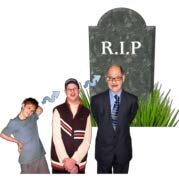
The report also says
- How old people were when they died.
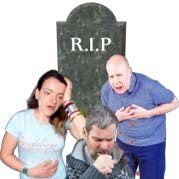
- What illnesses or diseases people died from.
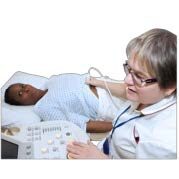
- If the people’s deaths might not have happened if they had got better care.

Better care in the future
The LeDeR Report also says what the government and NHS should change to make sure people with a learning disability or autism get better care in the future.